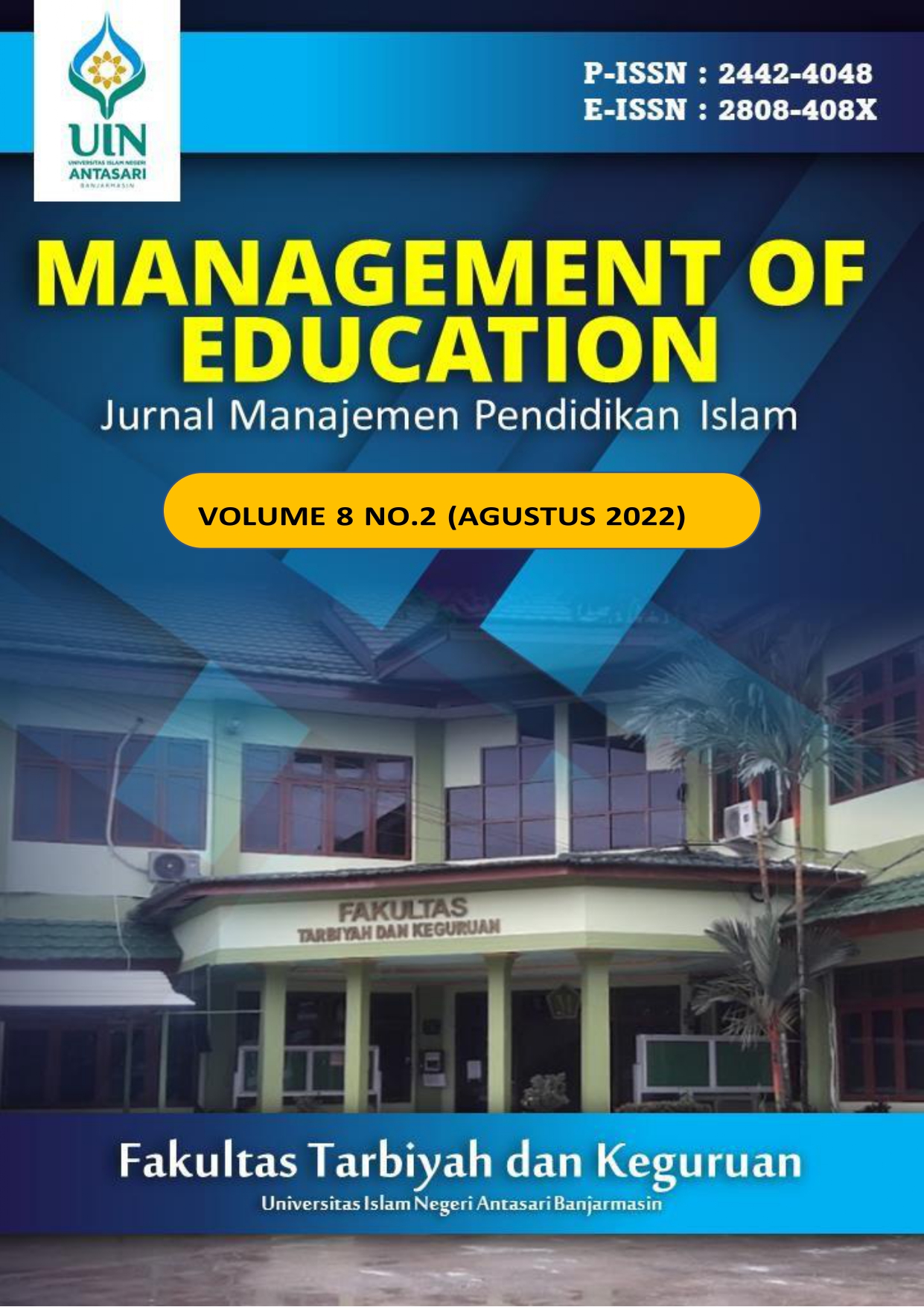SUPERVISION OF EDUCATION IN THE QUR'AN PERSPECTIVE (AN ANALYSIS OF TAFSIR TAHLILI QS. AL-HUJURAT VERSE 6 IN THE STUDY OF ISLAMIC EDUCATION MANAGEMENT)
DOI:
https://doi.org/10.18592/moe.v8i2.7325Keywords:
Supervision, Al-Qur'an, Tafsir TahliliAbstract
This study aims to explore the concept of educational supervision from the perspective of the Qur'an. The Qur'an is a holy book, a source of law and a way of life for Muslims until the Day of Judgment. As long as Muslims adhere to the Qur'an in living their lives, they will be safe in this world and in the hereafter. This type of research is library research with the tahlili interpretation method to interpret the verses of the Qur'an which are used as a reference for theoretical principles in the study of Islamic education management. This study found one verse that inspired the principle of supervision of educators and education personnel, namely QS. Al Hujuraat/49 verse 6. The conclusion of this research is, this verse is a source of principle for leaders in Islamic educational institutions to be really careful in supervising their subordinates or educators and education staff by responding to the truth of information or news and may not based on prejudice and evil intentions so that ultimately the actions taken can cause harm to others. The implications of the principle of this verse are very large for leaders in Islamic educational institutions in particular and educational institutions in general, accuracy in evaluating information on news is very important because there are so many problems that come and go every day. The bigger an educational institution is, the more complex these problems will be and if these problems are not evaluated jointly in a meeting or meeting of the head of the madrasa/school then the problems will be more numerous and piled up. So with a careful way of supervision or the term tabayyun, all these problems can be solved.References
Ad-Dimasyqi, I. bin A. bin K. bin D. bin K. bin Z. A.-B. (n.d.). Tafsr Ibn Kathir. Imam Ash-Shafi’i library.
Al-Fairuzabadi, M. (2009). Al-Qamus Al-Muhit. Dar al-Kutub al-Ilmiyyah.
Al-Qarni, A. (2008). Tafsir Al-Muyassar. Qisti Press.
Amirah. (2015). Methods and Patterns of Tafsir Muyassar by Aidh al-Qarni. Thesis.
Arikunto, S. (2004). Fundamentals of Supervision. PT. Rineka Cipta.
Ash-Shiddieqi, H. (1986). History and Introduction to Al-Quran Science. Bulan Bintang.
Bittel, L. R. and J. W. N. (1994). What Every Supervisor Should Know. PPM Management.
Manzur, M. I. M. I. A.-A. (2005). Lisan al-Arab. Dar al-Kutubal-Ilmiyyah.
Purwanto, M, N. (2010). Education Administration and Supervision. PT Pemuda Rosdakarya.
Sayuthi. (n.d.). Asbabun Nuzul: The Reason for the Revealing of Al-Qur’an Verses. Gema Insani Press.
Shihab, M. Q. (2009). Tafsir Al-Misbah. Lentera Hati.
Downloads
Published
How to Cite
Issue
Section
License
Authors who publish with this journal agree to the following terms:
- Authors retain copyright and grant the journal right of first publication with the work simultaneously licensed under a Creative Commons Attribution 4.0 International that allows others to share the work with an acknowledgement of the work's authorship and initial publication in this journal.
- Authors are able to enter into separate, additional contractual arrangements for the non-exclusive distribution of the journal's published version of the work (e.g., post it to an institutional repository or publish it in a book), with an acknowledgement of its initial publication in this journal.
- Authors are permitted and encouraged to post their work online (e.g., in institutional repositories or on their website) prior to and during the submission process, as it can lead to productive exchanges, as well as earlier and greater citation of published work.









 This work is licensed under a
This work is licensed under a 